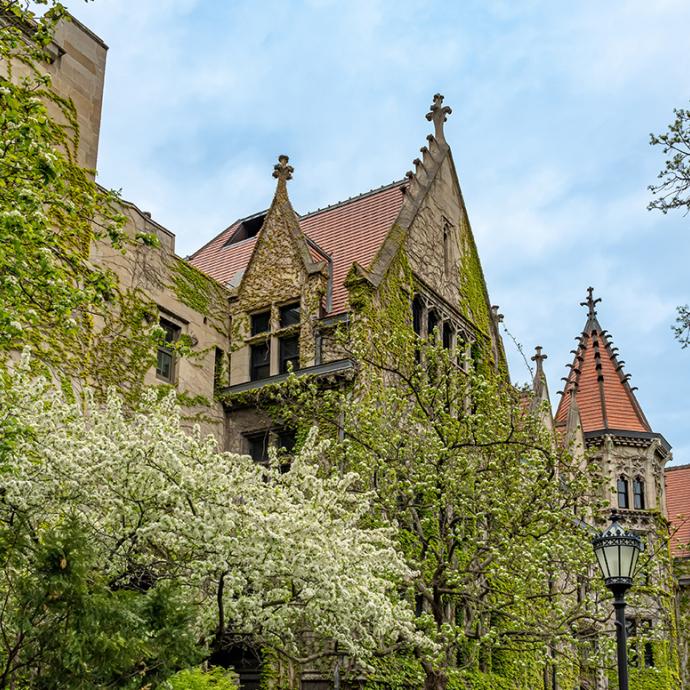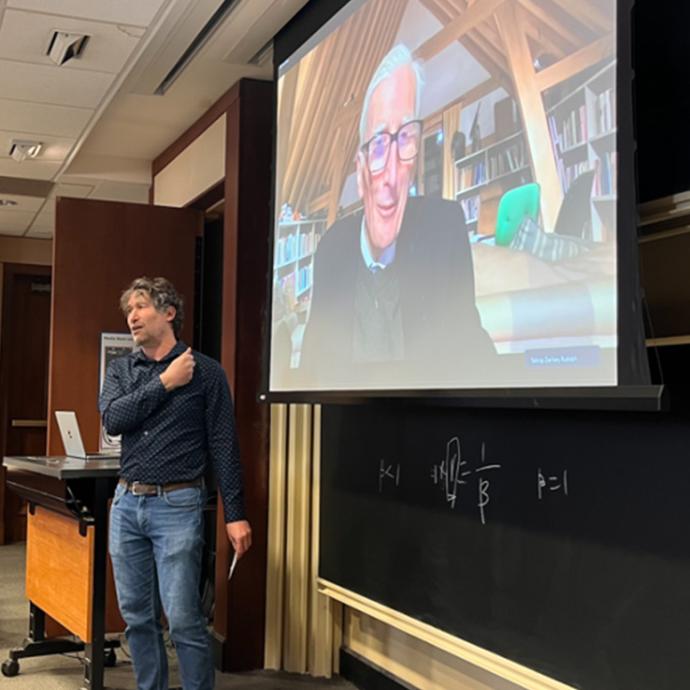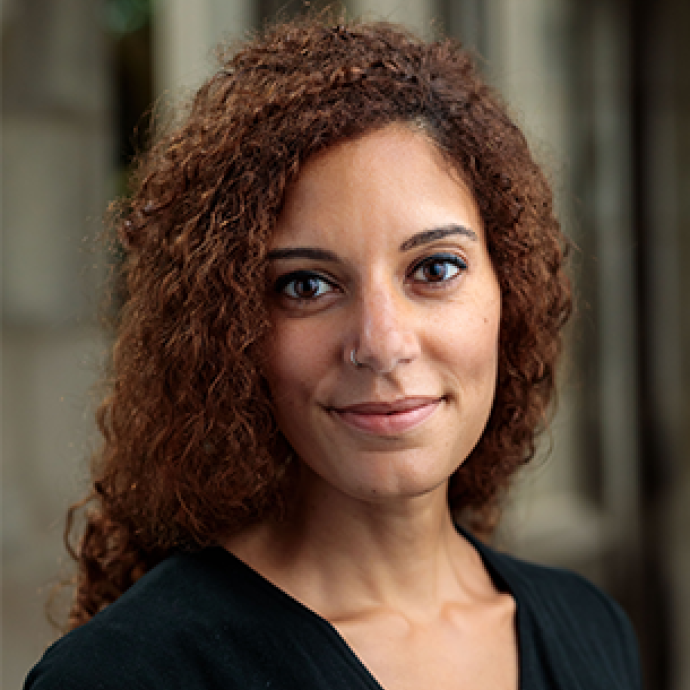He also recalled the lessons he learned from his father, a renowned mathematician whom David often came to for help on math homework—an exercise he called an “unmitigated disaster.” Instead of getting answers, David was annoyed to instead receive hours of rigorous analysis.
“It captured, I think, something special about my dad that I didn’t realize until later, which was that he was never satisfied just being told how to do something, what the way to do it was,” said Zimmer, a partner at Goodwin Procter Supreme Court and Appellate Practice. “He needed to know why you do it that way.”
Two of Zimmer’s former colleagues recalled the impact he had on their lives and careers.
When Katie Callow-Wright first joined the Office of the President at UChicago, she recognized that Zimmer was “exceedingly serious, sharply decisive and relentless in his vision” for the University. But in her time working for Zimmer, she recognized the investment he was making in her and others.
“To say that Bob took an interest in the development and future of people on his team is a dramatic understatement,” said Callow-Wright, who now serves as executive vice president at Princeton University. “It was like a mission for him to ensure that the people who worked around him would be exposed to challenges that would push us up towards the next steps of our careers—whether at Chicago or other institutions and organizations. When he saw talent in a person, he sought to bring it further to the surface, ensure it was carefully tended and harvested, and exposed other people to it in a way that led to important opportunities and contributions to the University.”
More than a half-dozen former UChicago administrators and deans who served under Zimmer have been appointed to lead universities and colleges. A number of those former UChicago leaders were in the audience for Zimmer’s memorial.
David Greene, the president of Colby College, served as executive vice president at UChicago under Zimmer. Greene talked about his deep friendship with Zimmer, which began when Greene recruited Zimmer to become provost at Brown University 20 years ago.
Greene recalled how he worked with Zimmer to help the University grow in myriad ways—from the opening of global centers in Asia to focusing on issues in the city of Chicago, including education, crime and health—initiatives which Zimmer viewed as critical to the University’s future.
“He really saw the greatness of the University as fragile. He was always concerned about what could happen,” Greene said. “He really did believe that the only way forward was to strengthen the distinctiveness of this great university, to connect it into the world in a deeper and more robust way.”
David M. Rubenstein, JD’73, chair of the Board of Trustees, reflected upon Zimmer’s impact—not just on the University of Chicago or higher education—but on the country. He hailed Zimmer as a “patriot” for his defense of free expression at UChicago and beyond.
“All of us want to do something in life that makes us feel we’ve done something to justify our existence in the face of the Earth. Bob did that: He took a great university and made it even greater,” Rubenstein said. “In many ways, Bob has shown himself to be a great patriot—a patriot who really did more for America than many people who serve in our government. And for that, I really am indebted to Bob because he’s made our country stronger.”
Rubenstein encouraged those in attendance to honor Zimmer by working to make the University and the country a better place.
“When there are challenges to academic freedom, stand up to them. When there are challenges to excellence, stand up to them. When you see a difficult problem, try to tackle it. Do not accept no for an answer. Accept yes, and get people to do what you think is best. That is what Bob Zimmer did.”










 —Prof. Chuan He
—Prof. Chuan He
